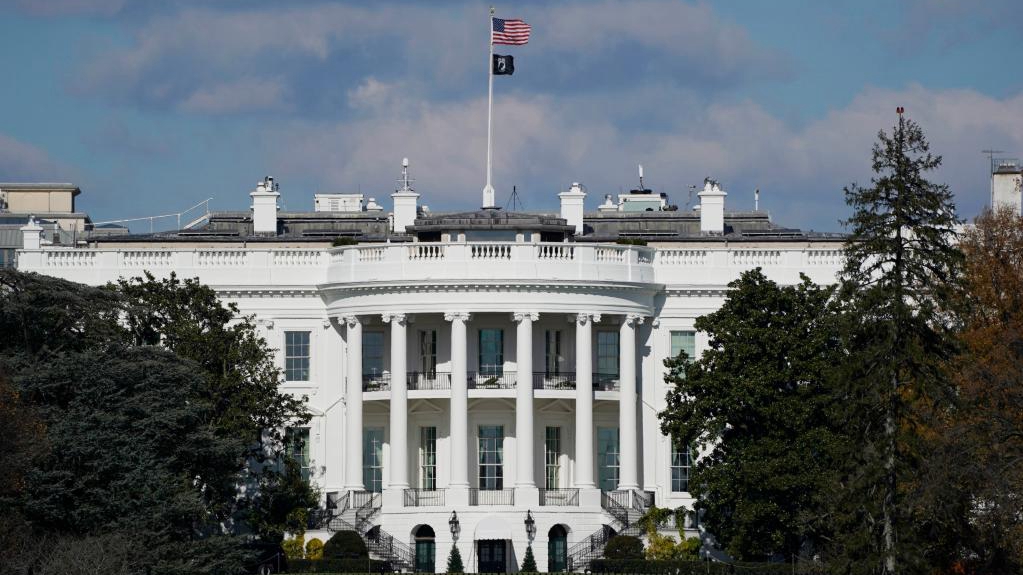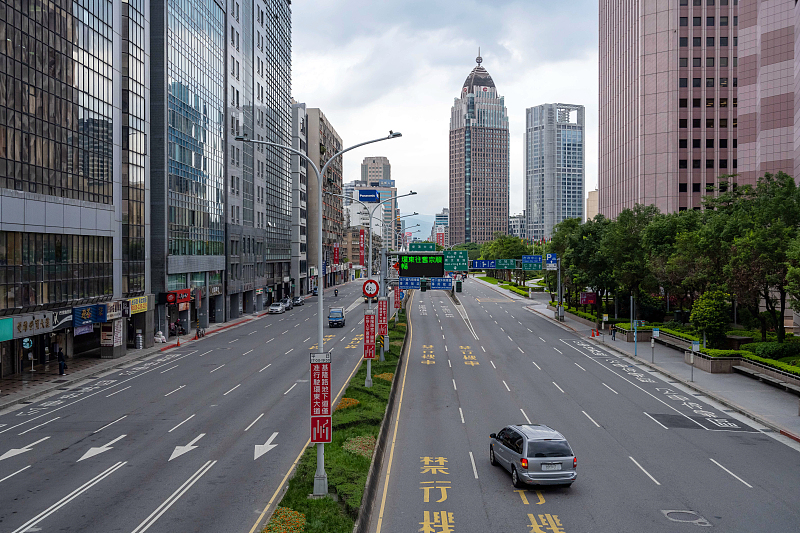
The White House in Washington, D.C., the United States, November 23, 2021. /Xinhua
The White House in Washington, D.C., the United States, November 23, 2021. /Xinhua
Editor's note: Hamzah Rifaat Hussain, a former visiting fellow at the Stimson Center in Washington and former assistant researcher at the Islamabad Policy Research Institute, is a TV anchor at Indus News in Pakistan. The article reflects the author's opinions and not necessarily those of CGTN.
United States President Joe Biden has repeatedly claimed that peace and stability in the "Indo-Pacific" sphere stands as top priority for the country. But Washington's actions, policies and modus operandi would suggest otherwise.
Days after Biden concluded his trip to Asia, a U.S. delegation, led by Democrat Senator Tammy Duckworth from Illinois, made an unannounced visit to China's Taiwan region. The trip fits a pattern of behavior aimed at undermining Chinese sovereignty and another repeat of prior diplomatic blunders that have exposed American duplicity over upholding principles of peace in the region.
U.S. politicians are stirring up trouble in the Taiwan region, which appears to have become a recurring feature of the Biden administration. The delegation is scheduled to meet Taiwan leader Tsai Ing-wen as they are expected to hold discussions centering on regional security, as well as trade cooperation.
First of all, the U.S. does not have diplomatic relations with China's Taiwan region and Washington's policy officially recognizes the People's Republic of China, along with its writ and state sovereignty. Hence any discussions related over security partnerships with Taiwan authorities cannot enhance bilateral relations with Beijing and would undermine it.
Duckworth's delegation is believed to be holding talks on providing arms and ammunition to the Taiwan region, while the U.S. side is recommending to boost the island's coastal air defense systems and pursue asymmetric warfare against the Chinese mainland.

Vehicles travel along a near empty road in Taipei, southeast China's Taiwan, June 3, 2021. /CFP
Vehicles travel along a near empty road in Taipei, southeast China's Taiwan, June 3, 2021. /CFP
Aditionally, under the one-China principle, the U.S. recognizes that Taiwan is part of China and congressional delegations going to Taiwan stands as an affront to that principle. Last April, a bipartisan delegation consisting of Senators Lindsay Graham, Bob Menendez and Ronny Jackson made an unannounced visit to Taiwan and gave constant references about championing freedom and secession, which marks a stark contrast to the principles of non-interference. Any attempts to convey such messages would only embolden separatists in the Taiwan region. Meanwhile, Chinese President Xi Jinping last March warned Biden about handling the Taiwan question properly.
A repeat of the April visit has exposed America's failed approach towards meaningful cooperation with Beijing. Back then a deliberate attempt was made to couple China's Taiwan region with the Ukraine crisis with six U.S. lawmakers expressing solidarity with Taiwan and promising to resist any attempts by Chinese mainland to exercise its just rights to seek peaceful reunification. The response to such provocative rhetoric was intended to safeguard state sovereignty with aircraft deployed as combat patrols and maritime exercises to ward off dual threats, including America's political endorsement of Taiwan authorities' defense and arms sales promoting subversion.
The last time Duckworth visited China's Taiwan region was in 2021 where talks centered on U.S. COVID-19 vaccine donations. Yet, Tsai Ing-wen's spokesperson confirmed that talks in 2022 will range from security, economics and peace issues. The delegation should refrain from having these discussions, which undermines the territorial integrity of another sovereign state and serves as brazen interference, which will always be a red-line for any country and China is no exception to the rule.
Callous flouting of clearly defined limits defining the China-U.S. relations are unacceptable. A course correction is the way forward for the Biden administration. Otherwise, this duplicitous approach would be exposed time and time again.
(If you want to contribute and have specific expertise, please contact us at opinions@cgtn.com. Follow @thouse_opinions on Twitter to discover the latest commentaries in the CGTN Opinion Section.)

